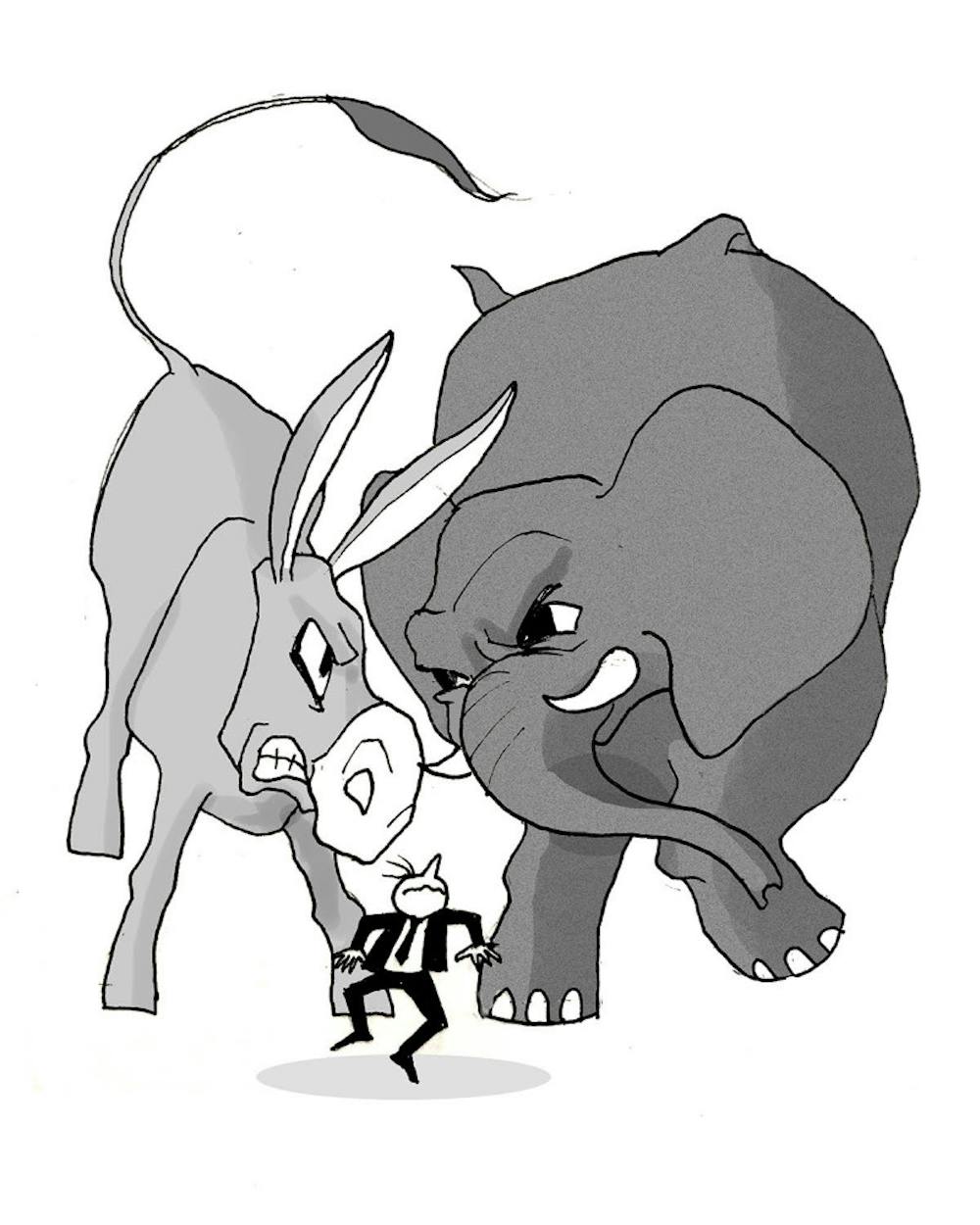In the 2018 Rhode Island gubernatorial race, four third-party candidates are challenging Democratic incumbent Gov. Gina Raimondo and her Republican opponent Cranston Mayor Allan Fung.
A recent survey by WPRI/RWU found that 20 percent of R.I. voters are either backing an independent candidate or undecided. Independents have run successful campaigns in the past 30 to 40 years, said Richard Arenberg, visiting professor of the practice of political science, citing Lincoln Chafee’s win in the 2010 R.I. gubernatorial race.
“Third-party candidates can be very influential in the outcome of an election,” Arenberg said.
Even in cases when independent runs are not successful, the votes garnered by these candidates can have a direct effect on who is elected, he added.
Moderate Party candidate Bill Gilbert claims that his party’s 2014 bid — which received 21.4 percent of all votes — propelled Raimondo into office.
The Moderate Party — which aims to retain 5 percent of voters in the R.I. election — leans conservative in its emphasis on small government but has a libertarian approach to social issues. The Moderates leave these issues up to individual candidates rather than having a particular party standard, Gilbert said.
Unlike the Republican party, for example, Gilbert believes in the need for a “safety net” that provides government assistance to those most vulnerable in society.
The party was officially recognized in 2009 and is the only political party on voting ballots in Rhode Island besides the Democratic and Republican parties.
“I’m trying to affect politics and win,” Gilbert said. “But I’ll settle for affecting the political game by trying to present credible, honest and issue-driven dialogue.” He added that third-party candidates can raise issues that are not being discussed by the nominees of major parties.
However, gaining such exposure can itself be a challenge. Independent candidate Luis-Daniel Muñoz — who is advocating for lower taxes, trade school programs and education and health care reform — believes several R.I. media organizations purposely excluded him from news coverage.
For example, Muñoz said WPRI’s criteria for choosing candidates to cover and participate in debates has been inconsistent. While WPRI continues to report on Gilbert and independent candidate Joe Trillo, who previously served as a state representative, he was not “given the same opportunity,” Muñoz added.
Muñoz’s campaign held a silent protest in Bristol last night — right outside of the WPRI and Roger Williams University debate that only Raimondo, Fung and Trillo participated in.
“The media, in making decisions about who they are going to let into debates, … can have a great deal of influence” on an election, Arenberg said. “If the third-party candidate is excluded from a debate, for example, it makes it all that much harder to be taken seriously.”
Independent candidate Anne Armstrong of the Compassion Party believes that the state should implement ranked-choice voting, which was most recently implemented for state-level elections in Maine. Armstrong also advocates for a plan called reGenerative Funding, which aims to fund social services, and is a proponent of the health and economic benefits of cannabis.
Trillo could not be reached for comment. Trillo is focused on eliminating what he considers wasteful public spending. In Thursday night’s gubernatorial debate, he said he wants to reduce taxes and “shed the image of (Rhode Island as) a sanctuary state.” He insisted that he was “in this race to win it.”





